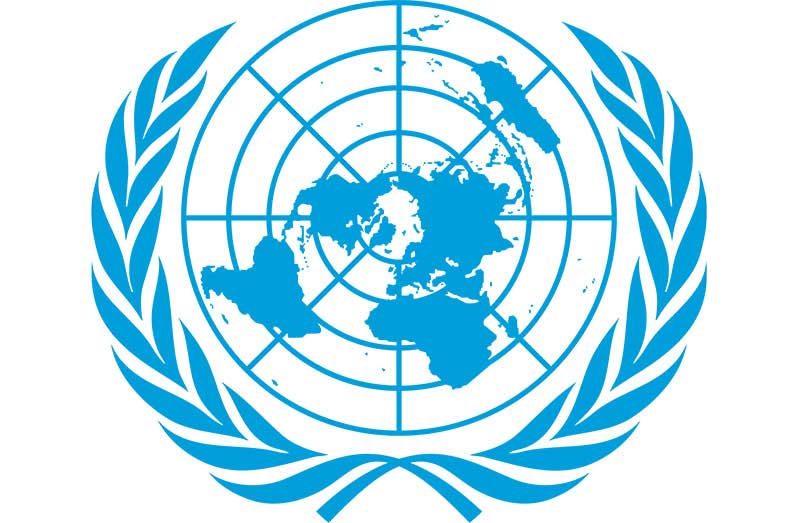THE United Nations Development Programme (UNDP) reaffirmed at the Global Biodiversity Alliance Summit, its commitment to advance efforts in coordination with the United Nations country teams and development partners, to continue supporting national biodiversity strategies and objectives, linking nature, climate and development as part of the same, and translating high-level commitments as the one, included in the declaration, into tangible results.
The summit, hosted in one of the world’s most forest-rich nations, Guyana, brought together global leaders, development partners and civil society to accelerate action on the Kunming-Montreal Global Biodiversity Framework.
Representing the UN Secretary-General, Michelle Muschett, UN Assistant Secretary-General and UNDP Regional Director for Latin America and the Caribbean, delivered remarks during the first plenary session of the summit.
During her remarks, she underscored the importance of biodiversity as a foundation for peace, prosperity, and planetary health.
“Latin America and the Caribbean hold immense potential to lead the global shift toward a nature-positive future—not just because of our biodiversity, but [also] because of our commitment to reimagining development.
“Our 2025 Regional Human Development Report is a call to transform the intense pressures on our societies into a force for renewal—one where biodiversity conservation and multilateral co-operation become the foundation of a resilient, inclusive future. Let this summit be the inflection point where urgency meets unity, and where we turn ambition into action for people and planet.”
The UNDP’s participation at the Summit spotlighted its Nature Pledge, a US$3.9 billion portfolio supporting 145 countries to align biodiversity strategies with climate goals and sustainable development.
Through initiatives such as BIOFIN, the UNDP is helping countries unlock and align finance for biodiversity, ensuring that nature-based solutions are embedded in national development planning.
In his remarks, Andrew Seidl, Senior Technical Advisor for the Biodiversity Finance Initiative (BIOFIN), UNDP Nature Hub – emphasised the importance of us viewing biodiversity beyond the concept of animals and plants: “Above all, we have learned to ‘think globally, but act locally,’ and that the effects of biodiversity loss, climate change and land degradation are felt most strongly by the most vulnerable in society.”
Further explaining that financial innovation and partnerships are of the utmost importance when talking about biodiversity protection and interventions, “Local ownership and political commitment, inclusive governance, science and data, sustainable finance, local capacity, innovation and communication are key to unlock these solutions for these local and global challenges.”
Ahead of the summit, on the United for Biodiversity’ podcast, Katy Thompson, UNDP Resident Representative for Guyana and Suriname, reflected on Guyana’s leadership and the role of development partners.
She highlighted UNDP’s support to 140 countries in implementing the Kunming-Montreal Global Biodiversity Framework and noted Guyana’s integration of biodiversity protection into national development through its Low Carbon Development Strategy.
By balancing environmental, economic, and social priorities, and centering inclusion, Guyana offers a compelling model for translating global biodiversity goals into local action, setting a high bar for other biodiverse nations.
UNDP’s integrated programme in Guyana is advancing the country’s Low Carbon Development Strategy (LCDS), disaster risk management and energy transition through a multifaceted approach grounded in inclusion, sustainability, and innovation.
Under the LCDS, UNDP supports biodiversity conservation and protection, while also aligning Guyana’s National Biodiversity Strategy and Action Plan (NBSAP) with the Global Biodiversity Framework.
In disaster risk management, the UNDP works to strengthen national-recovery mechanisms, building on the efforts of other partners, to ensure inclusive and gender-responsive recovery from climate impacts, working closely with national institutions such as the Civil Defence Commission and the Ministry of Local Government.
On energy transition, initiatives such as the Just Energy Transition project are building solar-powered EV charging stations and the mainstreaming low emissions project, installing solar panels at water-treatment facilities, with a strong focus on youth and women’s participation.
These efforts are reinforced by UNDP’s role as a trusted integrator, mobilising resources, fostering partnerships, and ensuring that climate resilience, biodiversity, and inclusive development are mutually reinforcing pillars of national progress.
These efforts demonstrate how biodiversity, climate resilience, and inclusive development are mutually reinforcing pillars of UNDP’s work.



.jpg)








